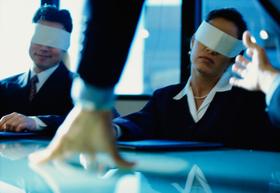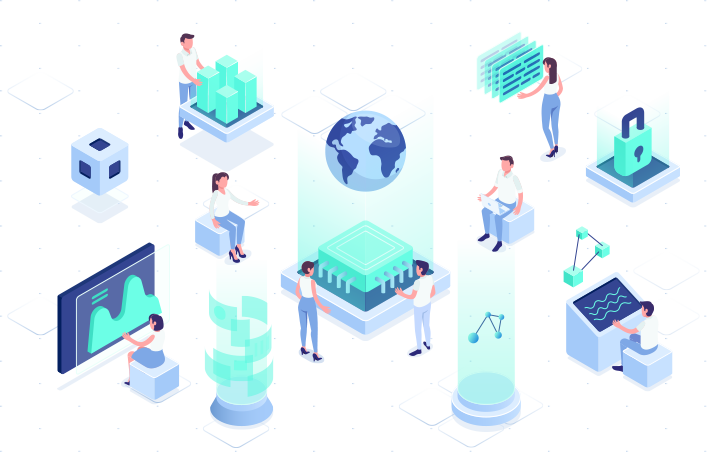WHAT IS ERP SOFTWARE?

ERP Software is an acronym for enterprise resource planning. Enterprise resource planning (ERP) is a collection of software modules such as accounting, inventory control, production planning (MRP), WIP (Work in Progress or Work in Process), BOM (Bills of Material), purchasing, sales orders, invoicing, Accounts Receivable (AR), Accounts Payable (AP) and often CRM. ERP software integrates all facets of an operation — including product planning, development, manufacturing, sales and marketing — in a single database, application and user interface.
DO I NEED ERP SOFTWARE
- Does your company struggle to get quality information quickly?
- Can you provide financial reports immediately after month end?
- Do you know which supplier delivers on time, at the best cost – consistently?
- Can you predict shortages in manpower or materials to deliver products on-time?
- Is your existing system segmented – forcing your employees to work harder to get information that should readily be available?
- Do you want to better manage costs and forecast profitability?
- Do you want to benefit from ‘best practice’ procedures from many different industries?
- Do you want better visibility of your inventory? Lot Traceability, Serial Numbers, time on shelf, time to ship, production lead times, supplier lead times, inventory turns…
- Would your company benefit from real time information from a fully integrated system?
- Would you like to better forecast sales trends to improve faster delivery and reduced inventory?
WHY DO I NEED ERP SOFTWARE?
The short answer is – it can help to make your company more efficient. Imagine using your CRM system to flag your salesperson to follow up with a customer. During the follow up call, the sales person gets a purchase order from the customer. The sales person enters the order into your ERP System. Because you are using a fully integrated ERP system with MRP, demand is created for the product. If the inventory is already in the warehouse, the ERP system can notify your warehouse the item needs to ship. If the item is not something you normally stock, purchasing and production are notified of the demand to create (or purchase) the product for the customer. The item is invoiced once it ships, which automatically hits your accounts receivable (AR). Once the customer pays, the payment is posted and accounting is up to date.
WHO USES ERP SOFTWARE?
FOR LARGE, COMPLEX BUSINESSES-
Keep track of the massive amounts of data divided among different areas such as accounting, inventory, and CRM. Lower costs by maintaining one, properly implemented ERP Solution. Save money by having the same information available to different branches or locations of the company. Create SOP (Standard Operating Procedures) across multiple branches of the company to maintain stricter controls of processes.
SMALL BUSINESSES
Who has time to manage multiple spreadsheets, or handle several different systems to view or report on information? An ERP system allows small business owners to spend more time on their actual business, and less time on administrative tasks.
MEDIUM-SIZED BUSINESSES
Medium-sized businesses often experience growing pains after moving from the small business realm. There are more people to hire and train, more strict controls on data and responsibilities are assigned and more roles are created.
The small family-like group that worked closely together in the past has grown to many more people that don’t necessarily have the same understanding of the struggles you faced as a small business. The accountant has moved into the role of CFO, and no longer ships packages on her way home at 9:00 pm. The president is no longer taking all sales calls himself. The purchasing person is no longer fixing all of the computer problems in his spare time.
With more employees, there is often less communication. Someone that may have always had the information readily available, is now concentrating on completely different tasks.
A properly implemented ERP system allows your company to grow, while allowing management to maintain all of the information they had before they hit the bubble. Tighter controls are needed to secure data and compliance issues.
ERP Software keeps the information flowing in the right direction.
NEED HELP SELECTING?
Afraid of having one ERP Software pushed on you and not know whether or not it is a good fit? We can offer a unique service where we help you analyze your company’s needs and help you select the best software. We can actually schedule demos with other software providers. Why would we do that? Buying an ERP system is a long term investment of time and money. We wouldn’t want to push you into a software that isn’t a good fit. We have great relationships with other ERP VARs throughout the country. Although we have had great success with Syspro for over 20 years, it is not always a great fit. At the end of the day, we want our customers to be happy.
Subcribe to our mailing list
What Is ERP Software?
ERP Software is an acronym for enterprise resource planning. Enterprise resource planning (ERP) is a collection of software modules such as accounting, inventory control, production planning (MRP), WIP (Work in Progress or Work in Process), BOM (Bills of Material), purchasing, sales orders, invoicing, Accounts Receivable (AR), Accounts Payable (AP) and often CRM. ERP software integrates all facets of an operation — including product planning, development, manufacturing, sales and marketing — in a single database, application and user interface.

Do I need ERP Software
- Does your company struggle to get quality information quickly?
- Can you provide financial reports immediately after month end?
- Do you know which supplier delivers on time, at the best cost – consistently?
- Can you predict shortages in manpower or materials to deliver products on-time?
- Is your existing system segmented – forcing your employees to work harder to get information that should readily be available?
- Do you want to better manage costs and forecast profitability?
- Do you want to benefit from ‘best practice’ procedures from many different industries?
- Do you want better visibility of your inventory? Lot Traceability, Serial Numbers, time on shelf, time to ship, production lead times, supplier lead times, inventory turns…
- Would your company benefit from real time information from a fully integrated system?
- Would you like to better forecast sales trends to improve faster delivery and reduced inventory?
The short answer is – it can help to make your company more efficient. Imagine using your CRM system to flag your salesperson to follow up with a customer. During the follow up call, the sales person gets a purchase order from the customer. The sales person enters the order into your ERP System. Because you are using a fully integrated ERP system with MRP, demand is created for the product. If the inventory is already in the warehouse, the ERP system can notify your warehouse the item needs to ship. If the item is not something you normally stock, purchasing and production are notified of the demand to create (or purchase) the product for the customer. The item is invoiced once it ships, which automatically hits your accounts receivable (AR). Once the customer pays, the payment is posted and accounting is up to date.
FOR LARGE, COMPLEX BUSINESSES-
Keep track of the massive amounts of data divided among different areas such as accounting, inventory, and CRM. Lower costs by maintaining one, properly implemented ERP Solution. Save money by having the same information available to different branches or locations of the company. Create SOP (Standard Operating Procedures) across multiple branches of the company to maintain stricter controls of processes.
SMALL BUSINESSES
Who has time to manage multiple spreadsheets, or handle several different systems to view or report on information? An ERP system allows small business owners to spend more time on their actual business, and less time on administrative tasks.
MEDIUM-SIZED BUSINESSES
Medium-sized businesses often experience growing pains after moving from the small business realm. There are more people to hire and train, more strict controls on data and responsibilities are assigned and more roles are created.
The small family-like group that worked closely together in the past has grown to many more people that don’t necessarily have the same understanding of the struggles you faced as a small business. The accountant has moved into the role of CFO, and no longer ships packages on her way home at 9:00 pm. The president is no longer taking all sales calls himself. The purchasing person is no longer fixing all of the computer problems in his spare time.
With more employees, there is often less communication. Someone that may have always had the information readily available, is now concentrating on completely different tasks.
A properly implemented ERP system allows your company to grow, while allowing management to maintain all of the information they had before they hit the bubble. Tighter controls are needed to secure data and compliance issues.
ERP Software keeps the information flowing in the right direction.
Afraid of having one ERP Software pushed on you and not know whether or not it is a good fit? We can offer a unique service where we help you analyze your company’s needs and help you select the best software. We can actually schedule demos with other software providers. Why would we do that? Buying an ERP system is a long term investment of time and money. We wouldn’t want to push you into a software that isn’t a good fit. We have great relationships with other ERP VARs throughout the country. Although we have had great success with Syspro for over 20 years, it is not always a great fit. At the end of the day, we want our customers to be happy.

Subscribe To Our Mailing List





